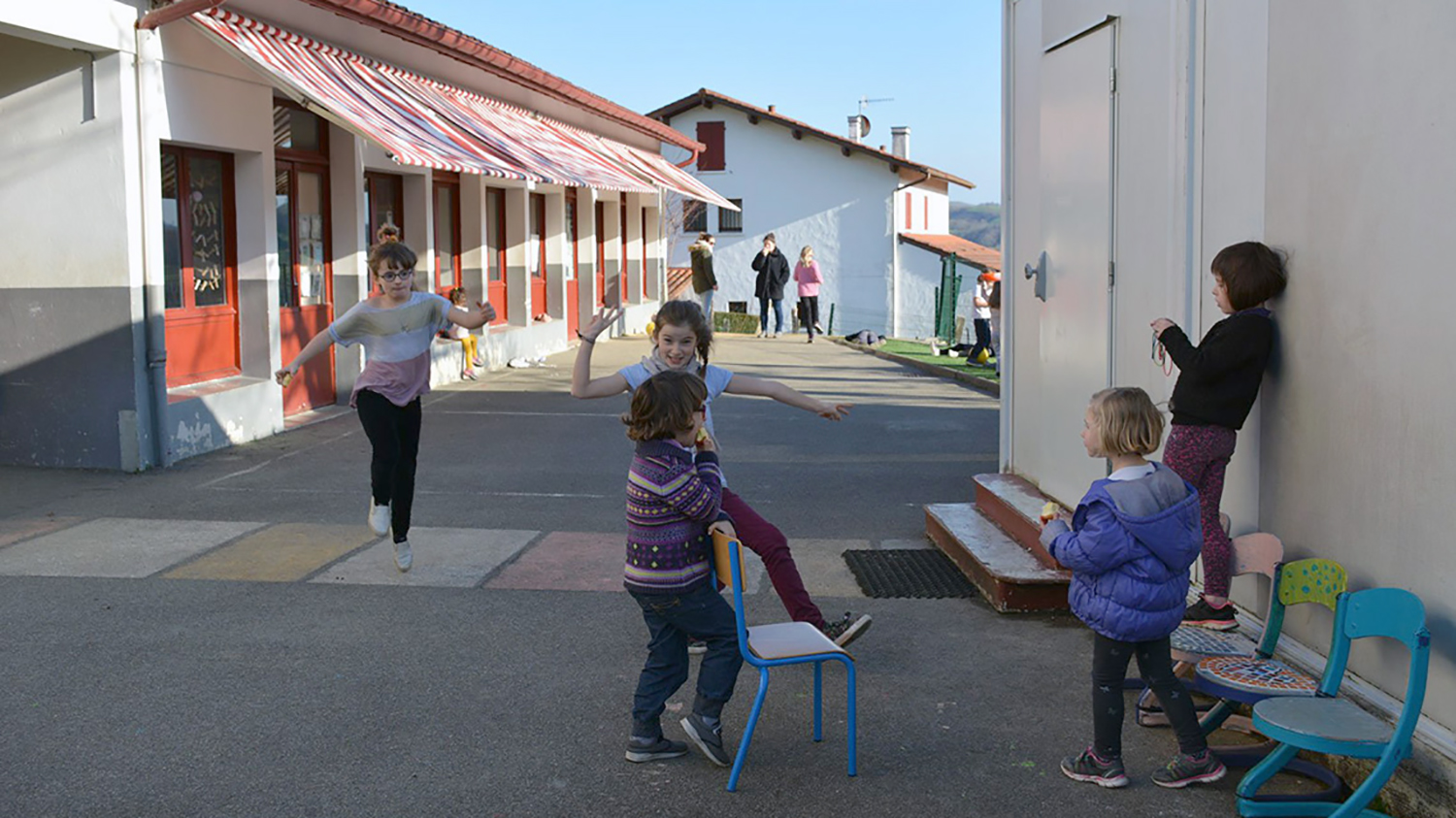"If teachers aren't motivated, how are we going to motivate an equal?"
- Speaking of the representation of the political work, film director Petra Bauer told me: That revolution is usually associated with street images, with flocks of men, but that really the key is in all the work behind it, in the invisible everyday work. It's called cooking work. Such a militant is Marisa Barrena. Now, for example, she's writing posts about Basque women on Wikipedia, and she's just received the award for the best Bidelagun on the Mintzanet website.
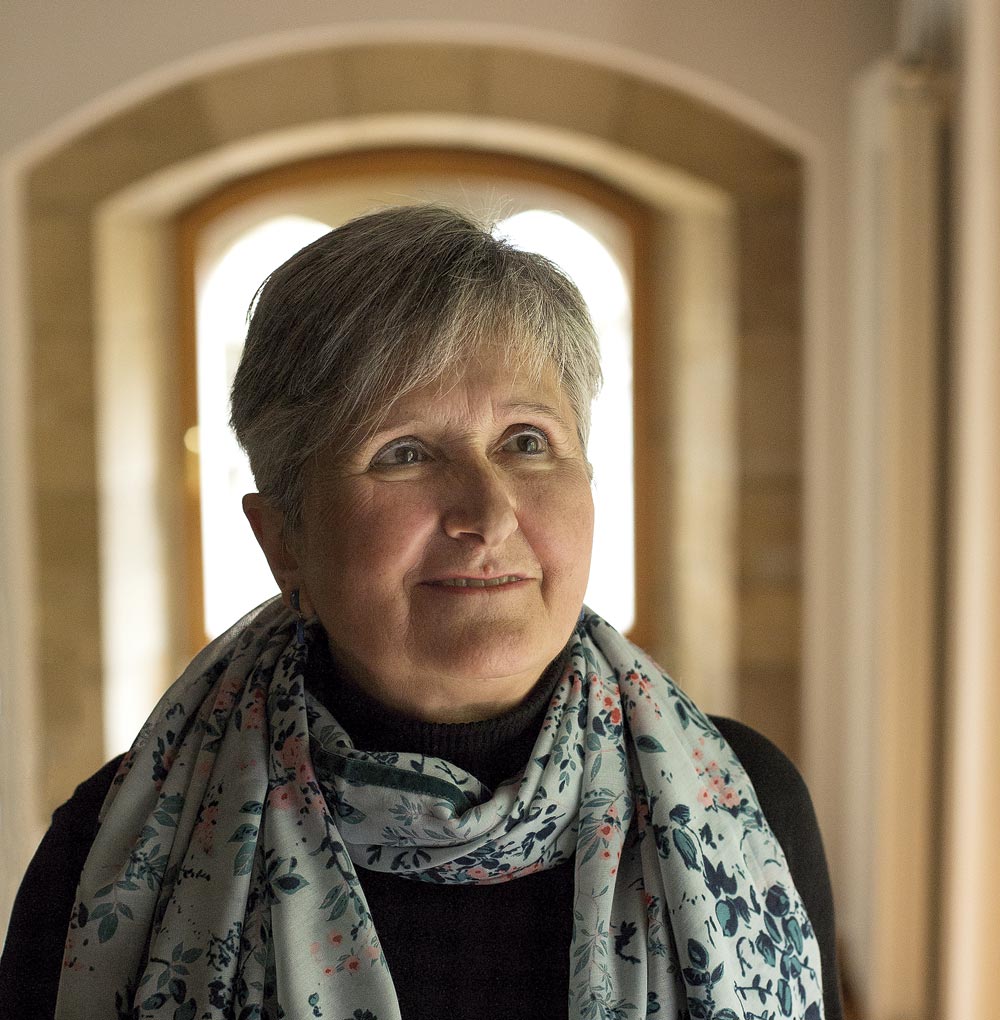
Bokazioa argi zuen umetatik: maistrie! Nagusiagotan ikasi zuen lanbidea: lehenik, Magisteritza, eta ondoren, Psikopedagogia. Militantzia politikoan ere jardun zen frankismo garaian: lehenik, HASIn, eta ondoren, EKIA taldea sortuta, Euskadiko Ezkerran. Alderditik bota zituzten, eta orduz geroztik ez da berriro inon afiliatu. Argi esan omen zioten, ez zuela politikarako balio, sentimenduek eragiten ziotelako. 2005ean sortu zuen, hainbat kiderekin batera, Andereak taldea. Urte hartan, Durangon, Ofelia Hernández erail zuen haren bikotekideak. Halakoak salatzeko premiaz sortu zuten elkartea.
You're retired, but you're not standing. How are you?
Well, withdrawal time is very nice for me, it gives me the opportunity to do many things I wanted to do.
You're not from Durango.
I was born in Amorebieta-Etxano in 1951, and then when I was 8 years old, we were kicked out of the house. Then there was no movement like Stop Evictions. After we kicked it out, we walked back and forth, and 36 years ago I came to Durango with my family.
You were born in the field, right?
Yes, and in the time we were in Euba we also lived in the farmhouse. His father loved the land and the animals a lot and, although he worked in the factory, he always wanted to live in the farmhouse and he did so until the last few years. I married on the street.
Didn't you have as much passion for the farm as your father?
The dwarf has a certain fascination for the neighbors of the street, but for those of us who were born in the dwarf has been a link, especially in the juvenile stage. When the street friends were going to the beach, we were collecting the grass. When I was young, the truth is that I did not love the dwelling, but it was not my calling. And you have to keep in mind that we were tenants, it's different. They also searched at home for me to have a job, and now I think it can be because of that, because we were tenants.
She started working young.
At the age of 15. This is now called an administrative assistant. My vocation was always to be a teacher, from a young age. But I finished 14 years of elementary school at the time, and we had little chance of doing teaching, so I did some trade studies in the village. A year later, the jobs came out and I introduced myself. I was there for ten years, first as an administrative assistant for a year, and then, managing the laps, but the work didn't satisfy me.
What factory was it?
A cooperative, Ekin. Being a cooperative, all workers were partners. They worked about 80 men and we were three girls in the office. But the girls in the office didn't have a choice to be a partner. Today yes, but then there was no choice. We were second-class. We didn't have a name. In the salary papers, for example, he put “the wages of the ladies”, and that ends up leaving him a question: What are we? To what extent are we secondary?
With the coworkers, however, the environment was very good. There was a movement in favor of the Basque, especially because the manager we had at some time was very Euskaltzale, and I have no bad memories, but it was not a job of my liking, and when I got the opportunity to work in the Federation of Ikastolas…
You took it.
Yes. The manager also told me that I would go quiet, that I would be kept in the square and kept, but I didn't come back. I worked for five years at the Ikastolas Federation, and that's when my interest as a professor began to awaken.
What did you do in the Ikastolas Federation?
The Federation of Ikastolas was a cooperative in Bizkaia and was its secretary. The secretaries of the other territories were men and once in a meeting something curious happened. They asked: “Hasn’t the secretary of Bizkaia come?” I said: “Yes, it’s me.” And they: “No, but the secretary…” The secretary wanted to be uppercase, not office clerk. Things like that. It was an interesting work.
Then came the relationship between public and private ikastolas. I was on the side of the audience. There was a lot of struggle inside, and the atmosphere was starting to rattle, and I thought maybe it would be better if I were looking for another path. As I kept wanting to be a professor, I took it.
He studied teaching.
Yeah, and I did the HABE oppositions. I worked there for years, but Joseba Arrangi, as a Minister of Culture and Euskera, closed some Euskaltegis, the Euskaltegis pilots, and from there I worked in other jobs. My favorite job, though, has always been teaching.
Why did pilot Euskaltegis close?
HABE had two types of Euskaltegis: on the one hand, pilots were, for example, in the three capitals of the community, and on the other, a barnetegi in Hondarribia. And then I had the municipal Euskaltegis. The pilots' workers were directly employed by the government, while the other Euskaltegis were managed by the municipalities. And the pilots' workers went on strike, especially for the hours. We received threats that the centers would close, but we never believed. The unions also told us that the government couldn't do that, but it did. Of course, we didn't stay out because we were already officials and they put us elsewhere.
Inside HABE we were given a good training. The worst, in my opinion, was that they were shut down when we were about to give the best of us, so I'm sorry. Then I had the opportunity to work at IRALE for several years, as a teacher of teachers, but in the end, being so complicated the strands within the administration, I couldn't continue, and I left teaching with a lot of sorrow.
However, he studied Psychopedagogy and studied the motivations of Euskaltegis students from Durangaldea.
I believe in motivation. I may be wrong, but I see the key there, and in the years I have worked I have been told many times the motivation of the students, but I always wanted to reach the other end: What motivation do the teachers have? If we're not motivated, how are we going to motivate an equal? I met with students from four Euskaltegis and concluded that the motivation of the teachers influences a lot, no doubt. In the years that I have worked, I have seen some very motivated colleagues and others, however, as if they were working on any other task, as if they were from clerks. I think that is not the same thing.

We have not mentioned it so far, but first of all, you began to teach Euskera in the field of militancy.
Yes, as an Euskera professor, I started when I was 18. We started the literacy campaign in Durango, with Rikardo Arrangi, Joseba's brother, before the creation of AEK. But we did that for a hobby, after we left the office. All the students would come with a desire, and we would spend the class hours with them, then we would take something in the bar, we would organize excursions on weekends… It was a family, a network.
What atmosphere was there at that time?
Do you say the street environment? To see, it was very different, the one who does not live underground may not imagine what it is... Everything was clandestine, but I also had a morb, at least for me. Besides, I was young, at 17-18 you already have strength and desire. The Jesuits left us their rooms and in front of the school there were three guys, secret civil guards. We all knew that, we gave them nicknames. We would walk into school, we would give class and then we would leave. It has to be said that we sometimes used to do other kinds of meetings.
And didn't the civil guards ever get in?
No, but I've been at the barracks once. They came to find me after the classes.
Why did they stop you?
It had some examples of what was called illegal propaganda, and that's why.
And then?
Then came the torture. It was common then and I believe it now. To be accused of illegal propaganda, I had to have three copies of the same pamphlet, but I had three different copies. I knew I wouldn't have a jail, they told me too, but because we were in a state of emergency, I had to hold there. They walked back and forth until they told me who had given me the grains.
How long were you?
Three days -- or rather, three nights. The nights were really terrible. In order not to leave marks, they would put wet rags on me and stick on me: on my legs, elbows, knees… Torture is terrible, you cannot describe it.
Three women who have been tortured in Donostia-San Sebastian have spoken a couple of weeks ago.
Yes ... It's terrible. And what they've suffered has nothing to do with mine. When I heard those women, I shuddered and began to cry.
And impunity is what dominates.
Now Pacok and [Etxeberria] have done a great job, but there we are not all, for example I have not done it. They've collected about 4,000 cases, and it's OK, but we went a lot more.
In the case of those of us who were less days, then it was called maleficent, but whoever suffered it cannot forget it. [Pause]. Well.
Do we change the subject?
Yes.
You also have to do with dance, you've been to the Kriskitin group in Durango.
The dance group was weak and I was asked for help. It would be about 32 years ago.
What have you worked on it?
I've been broadcasting. I have had two main objectives: to promote interculturality and parity. One, especially with regard to young people, who realise that it is also danced in other parts of the world, both traditional and non-traditional, and that there are similarities, which is not just ours, that similar dances are also made in Burgos, or in Poland.
And parity?
In Durangaldea, Dantzari Dantza is our brand, seven or eight dances. To this end, the Gerediaga association has organized for 50 years the day of Ezpata dantzari. I went to a meeting to organize that day and I thought that women would also dance and I was told no, no way! Then, in Kriskitin, as a mixed group, we decided in an assembly that we would not participate in the festival until the boys and girls left. And that's how years have passed.
And then?
In 2015, during the Aste Nagusia of Durango, Kriskitin brought a mixed group to dance that was welcomed with total normality. In 2016, Gerediaga's Ezpata dantzari Day three girls dared to dance among all men, while in 2017, our four girls danced for the first time in Iurreta Square. It was a memorable day where there were 84 men and four women. For them it was a great challenge and for me a great satisfaction. Moreover, it has to be said that they did very well.
Was it officially agreed that women could also participate or entered?
No, we go in. Well, first we reflected inside, we received counseling -- Oier Araolaza helped us a lot -- we organized talks, first looking inwards and then locally. Before we enter, we've worked on the subject. The fact is that in 2017 the 50th anniversary of Ezpata Dantzari Day was celebrated and has not been repeated ever since.
Has this not been done this year?
This year it has not been done. I do not think it is for us, but that has been decided.
This year you have done something at: The Duchess dancer María Francisca Scholasstica de la Fuente Bolangero comes to light.
I found it by chance, and I'm very happy with this discovery. I found it through the purple glasses. Here, the Dishes are very famous [Plateros]: Family of the Bolangero Fountain. In fact, there were many siblings, but two have always been mentioned: one danced and the other played and wrote poems and verses. So they signed their papers. Dishes from Durango. Well, when I was looking for something else, I found the trail in a text by Lino Akesolo: in a book he published two hundred years ago in Paris, [Juan Antonio] Zamakola wrote that the dancer Plateru danced with his sister, and I thought: There is also a sister who would then be a dancer! I started looking for it in church papers, in baptism papers, and because I was the only girl among my children, I easily found our Scholastic Mary. I discussed it with a number of dancers in the area and prepared the Plateru show to bring it to light and bring it to life. It premiered the day of St. Simon and St. Juda, on the 14th anniversary of the Plateruena Theatre, and it was very exciting.
Nafarroa Beherean, Aiherrako 'Beltzegitea' etxean kokatuko da Eguzkilore haurtzain-etxe berria. Euskara, natura eta motrizitate librea oinarri harturik, heldu den apirilean hasiko dira zerbitzua eskaintzen.
To be honest, I don't know why I'm writing this. In today’s hostile environment, opinions of this kind are not well received. Perhaps LUZ will not publish this because it does not correspond to the opinions they have published so far (but if they have finally decided to publish... [+]









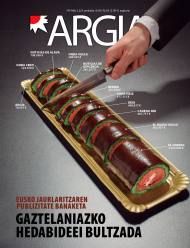


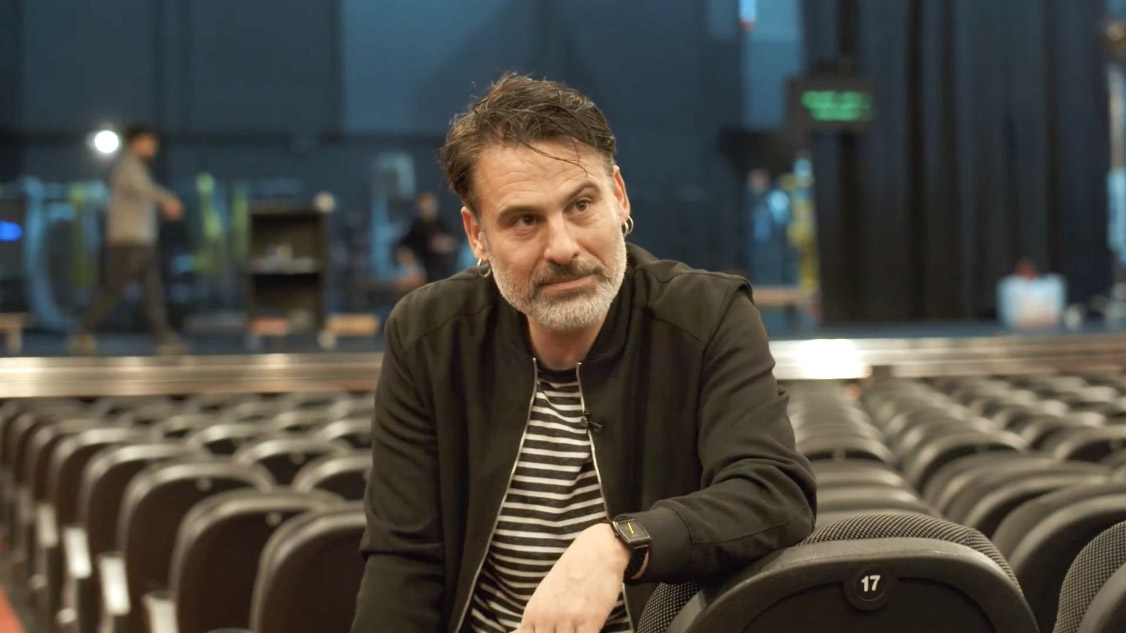

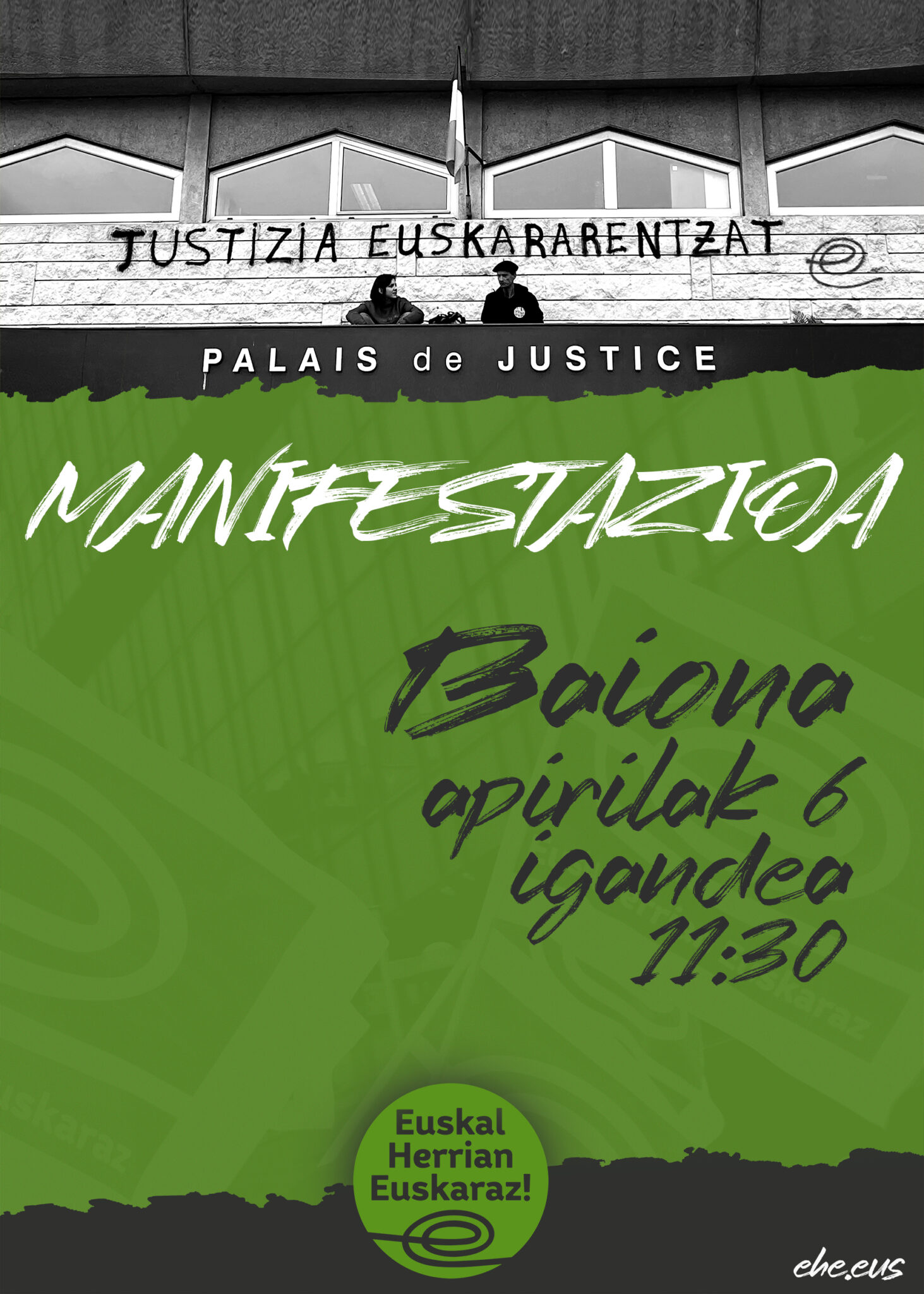


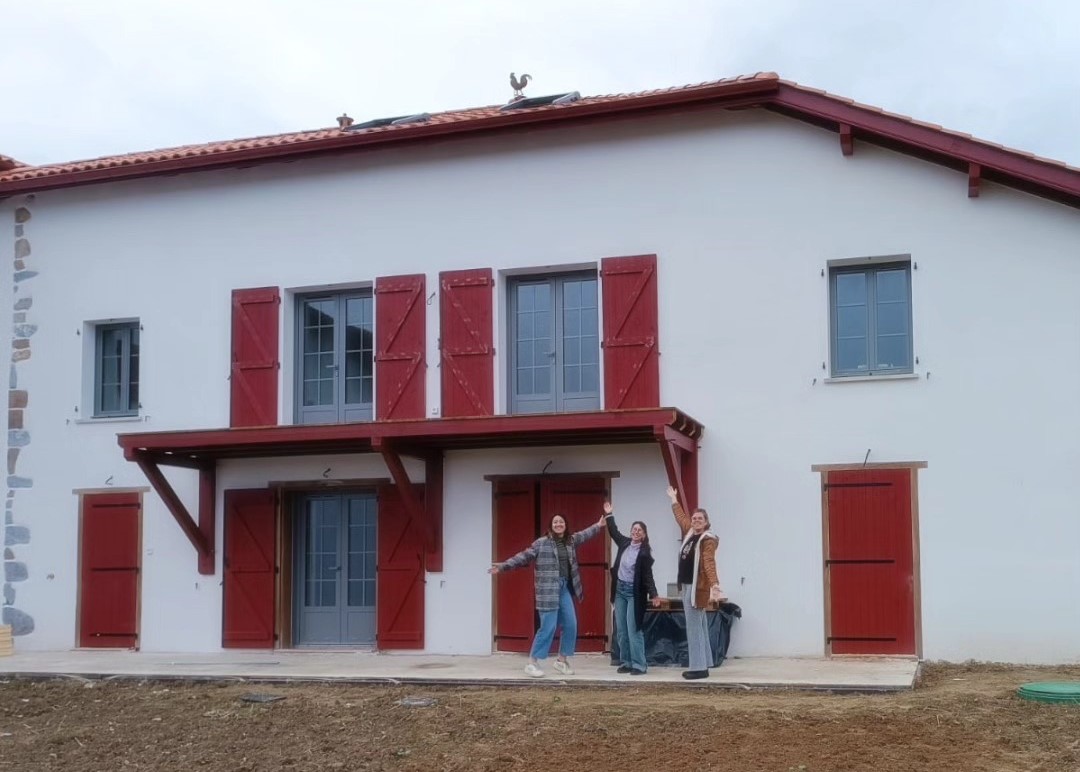

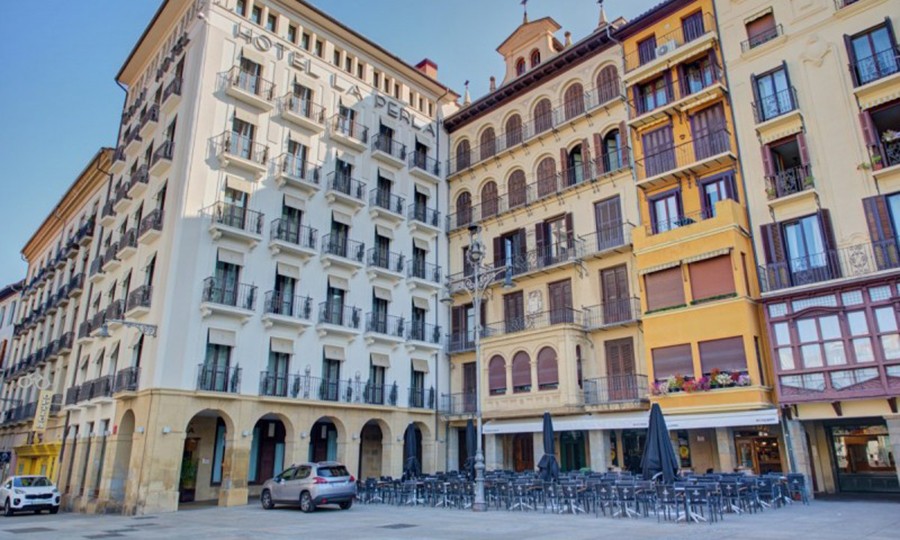

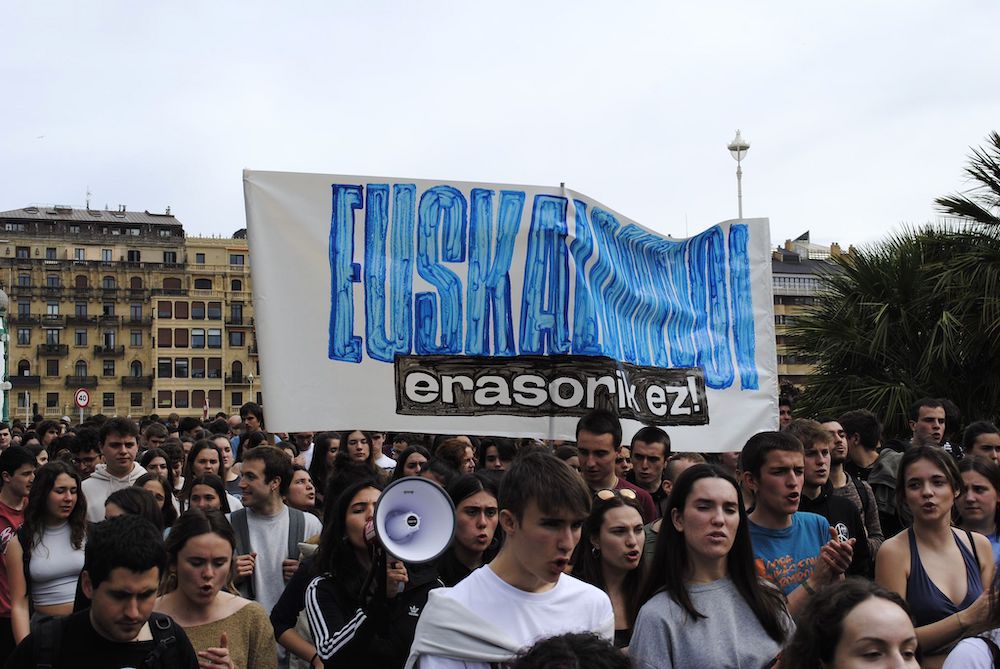
.jpg)

